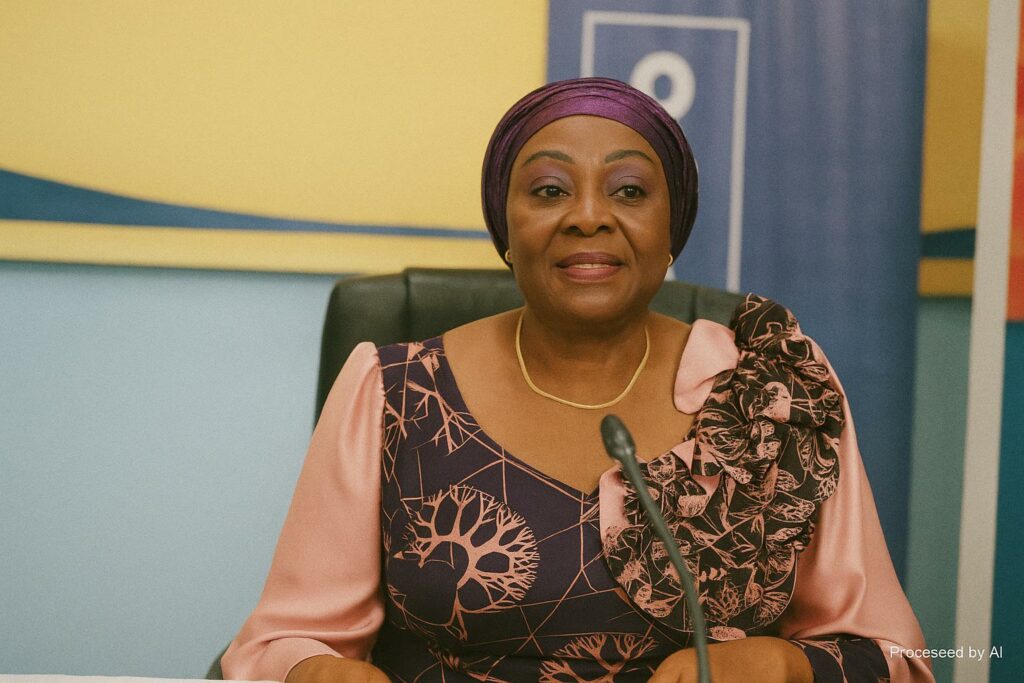Brazzaville Sounds and Continental Stakes
Hotel Ledger Plaza, overlooking the Congo River, thrummed with polyphonic rehearsals as delegates completed the intellectual score of the 12th Pan-African Music Festival. In closing the reduced-format symposium, Minister Marie-France Lydie Hélène Pongault insisted that African music must be treated not as an ephemeral entertainment but as a civilisational archive and a forward-looking industry. Her argument drew applause from musicologists, UNESCO advisers and producers who recognise that songs from Kinshasa to Cape Town are already streamed in São Paulo, Seoul and Seattle. The question is how Brazzaville can convert that global curiosity into a durable cultural economy without compromising artistic authenticity or national dignity.
Digital Disruption Meets Cultural Custodianship
Streaming revenues on the continent rose by almost forty per cent last year according to the International Federation of the Phonographic Industry, yet less than ten per cent reached African rights-holders (IFPI 2023). Speakers traced the gap to metadata deficiencies, fragmented collective-management systems and an asymmetrical negotiating power vis-à-vis global platforms. Minister Pongault’s call for updated legislation therefore resonated as more than a bureaucratic formality: it is a prerequisite for safeguarding livelihoods in an era when one viral chorus can cross oceans before domestic law has caught up. Delegates referenced Nigeria’s 2022 copyright reform and Kenya’s recent digital-levy experiment as case studies that Congo-Brazzaville might calibrate to its own realities.
From Fespam to Policy Architecture
Fespam was conceived in 1996 as a space for Afro-centric affirmation at the twilight of structural adjustment. Nearly three decades later, the festival’s intellectual wing serves as a de facto policy laboratory for Central Africa. The forthcoming compendium of proceedings, described by Pongault as a “precious manual”, is expected to inform a revised cultural code scheduled for parliamentary debate in 2024. Insiders indicate that provisions will create fiscal incentives for music-tech start-ups, require public broadcasters to adopt local-content quotas aligned with the African Union’s Charter for Cultural Renaissance and streamline visas for touring artists across the Economic Community of Central African States. Such measures would position Brazzaville as a regional node for creative-industry governance.
Economics of Heritage in the Congo Basin
Beyond the legislative sphere, the symposium foregrounded the macro-economic stakes of intangible heritage. A World Bank working paper estimates that creative industries could inject up to three per cent of Congo’s GDP within ten years if value chains are properly formalised (World Bank 2022). Economists at the meeting stressed that royalties, merchandising and festival tourism can complement the country’s hydrocarbon revenues and cushion external price shocks. Local entrepreneurs cited Pointe-Noire’s emergent recording hubs and the diaspora-financed studios in Paris and Montréal as evidence that capital is ready to flow, provided intellectual-property assurances are credible.
Towards a Pan-African Copyright Diplomacy
Several delegates advocated a transnational repertoire database anchored in the African Regional Intellectual Property Organization, enabling real-time tracking of compositions across borders. While the African Continental Free Trade Area has removed tariffs on physical goods, cultural content still faces what scholar Achille Mbembe calls “symbolic tariffs”—the legal and procedural frictions that impede royalty circulation. By championing an interoperable system, Congo-Brazzaville could amplify its diplomatic profile, echoing President Denis Sassou Nguesso’s broader vision of multilateral engagement grounded in cultural solidarity. Regional partnerships with Angola and the Democratic Republic of Congo, already advanced through joint safeguarding files to UNESCO, provide a pragmatic corridor for such cooperation.
Soft Power and Sustainable Development Goals
The festival’s concert finale featured young Congolese artists remixing traditional likembé motifs with Afrobeats, encapsulating the synthesis that the symposium theorised. That spectacle was a reminder that safeguarding heritage is inseparable from projecting soft power. As global audiences increasingly seek authentic narratives, Brazzaville’s curated soundscape can support diplomatic outreach, cultivate tourism and reinforce national cohesion in line with Agenda 2063 and the UN Sustainable Development Goals. The path forward demands meticulous regulation, investment in digital infrastructure and continuous dialogue between policymakers and creators. Yet the atmosphere in Brazzaville suggested cautious optimism: if the right chords are struck in law and commerce, Congo’s music could reverberate as both cultural memory and economic promise for generations.

